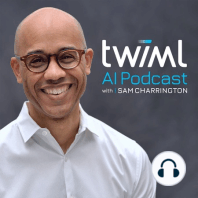19 min listen

AI Trends 2024: Machine Learning & Deep Learning with Thomas Dietterich - #666
FromThe TWIML AI Podcast (formerly This Week in Machine Learning & Artificial Intelligence)
AI Trends 2024: Machine Learning & Deep Learning with Thomas Dietterich - #666
FromThe TWIML AI Podcast (formerly This Week in Machine Learning & Artificial Intelligence)
ratings:
Length:
65 minutes
Released:
Jan 8, 2024
Format:
Podcast episode
Description
Today we continue our AI Trends 2024 series with a conversation with Thomas Dietterich, distinguished professor emeritus at Oregon State University. As you might expect, Large Language Models figured prominently in our conversation, and we covered a vast array of papers and use cases exploring current research into topics such as monolithic vs. modular architectures, hallucinations, the application of uncertainty quantification (UQ), and using RAG as a sort of memory module for LLMs. Lastly, don’t miss Tom’s predictions on what he foresees happening this year as well as his words of encouragement for those new to the field.
The complete show notes for this episode can be found at twimlai.com/go/666.
The complete show notes for this episode can be found at twimlai.com/go/666.
Released:
Jan 8, 2024
Format:
Podcast episode
Titles in the series (100)
This Week In Machine Learning & AI - 5/20/16: AI at Google I/O, Amazon's Deep Learning DSSTNE: This Week In Machine Learning & AI - May 20, 2016… by The TWIML AI Podcast (formerly This Week in Machine Learning & Artificial Intelligence)